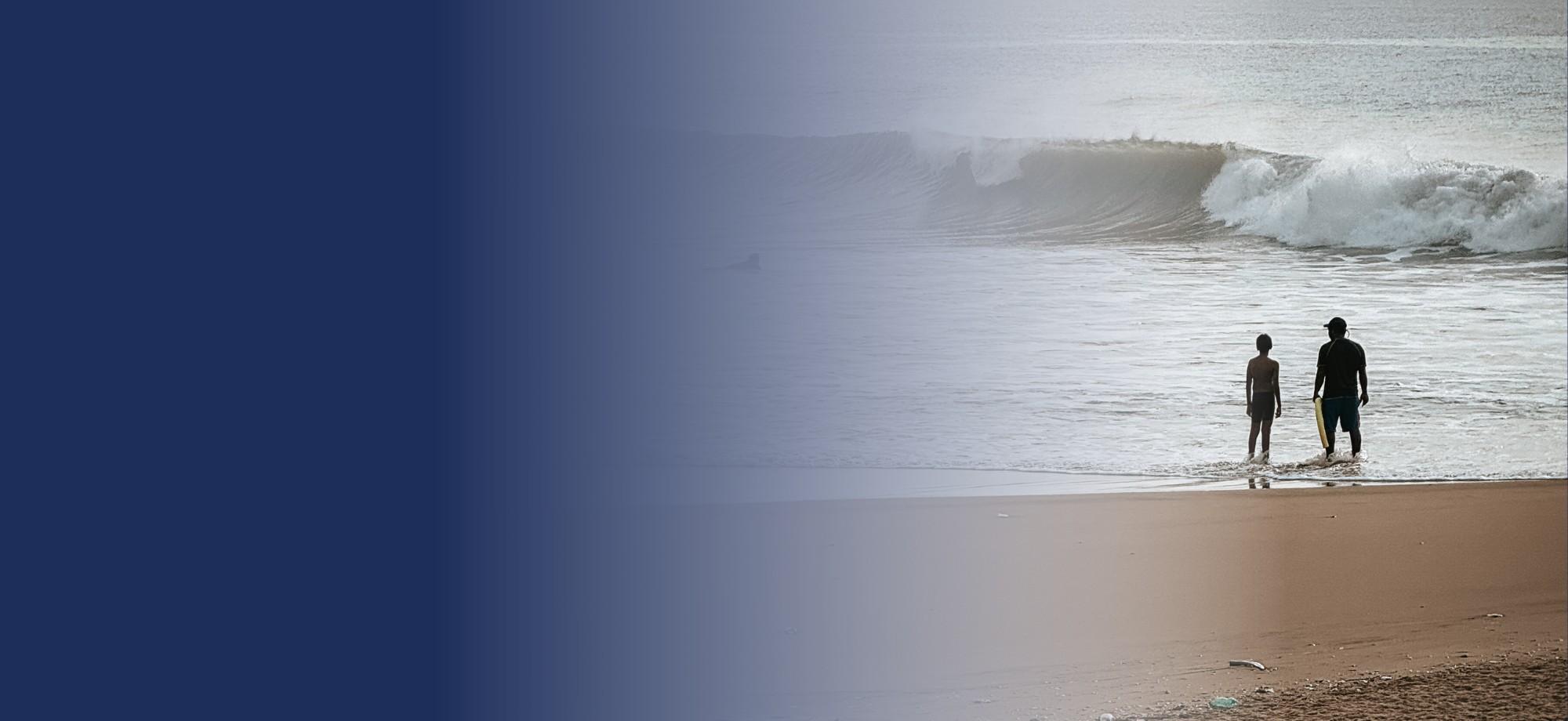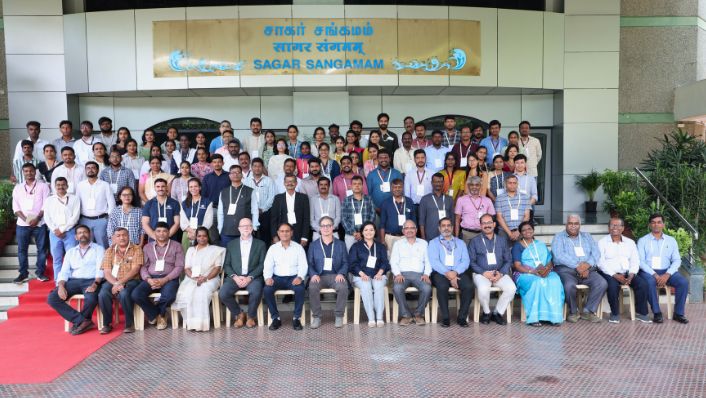More than 100 experts from around the world attended a workshop in India recently to tackle the compounded impact of climate change and plastic pollution on marine biodiversity.
The workshop, Marine Litter, Climate Change, and Biodiversity Loss – A Global Challenge, was co-hosted by AIMS and India’s National Centre for Coastal Research (NCCR).
It was part of the Indo-Pacific Oceans Initiative (IPOI) Hub to share knowledge and create an action plan to improve coastal community resilience to the threats in Australia, India and other Indo-Pacific nations.
Worldwide, coastal habitats such as sandy beaches, coral reefs, seagrasses and mangroves are at risk from the impacts of climate change as well as high levels of marine litter from rivers, fishing, shipping and waste disposal.
AIMS research scientist Ronen Galaiduk said while climate change remained the greatest threat to coastal and marine environments, increased litter, particularly plastic pollution, was further degrading the quality and health of marine and coastal environments.
“Together, the impacts of climate change and plastic pollution are compounded and are greater than the sum of each threat,” he said.
“We need to better understand the impacts of these twin pressures to identify science-driven solutions and inform local management and mitigation practices.”
The workshop aimed to raise awareness and foster regional cooperation. It included delegates from Australia, India, Indonesia, Singapore and Portugal.
AIMS scientists Dr Galaiduk, Dr Eric Treml, Dr Josh Bonesso, and Dr Marina Santana shared expertise on the impacts of transitional plastics, spatial mapping of marine debris sources and biodiversity, and how to translate beach cleanup data into actionable insights for science and management.
Other regional delegates presented on topics of marine pollution sources and mitigation from their countries, highlighting the transboundary nature of marine pollution.
IPOI Hub is an AIMS initiative, in partnership with NCCR, funded by the Australian Government.


